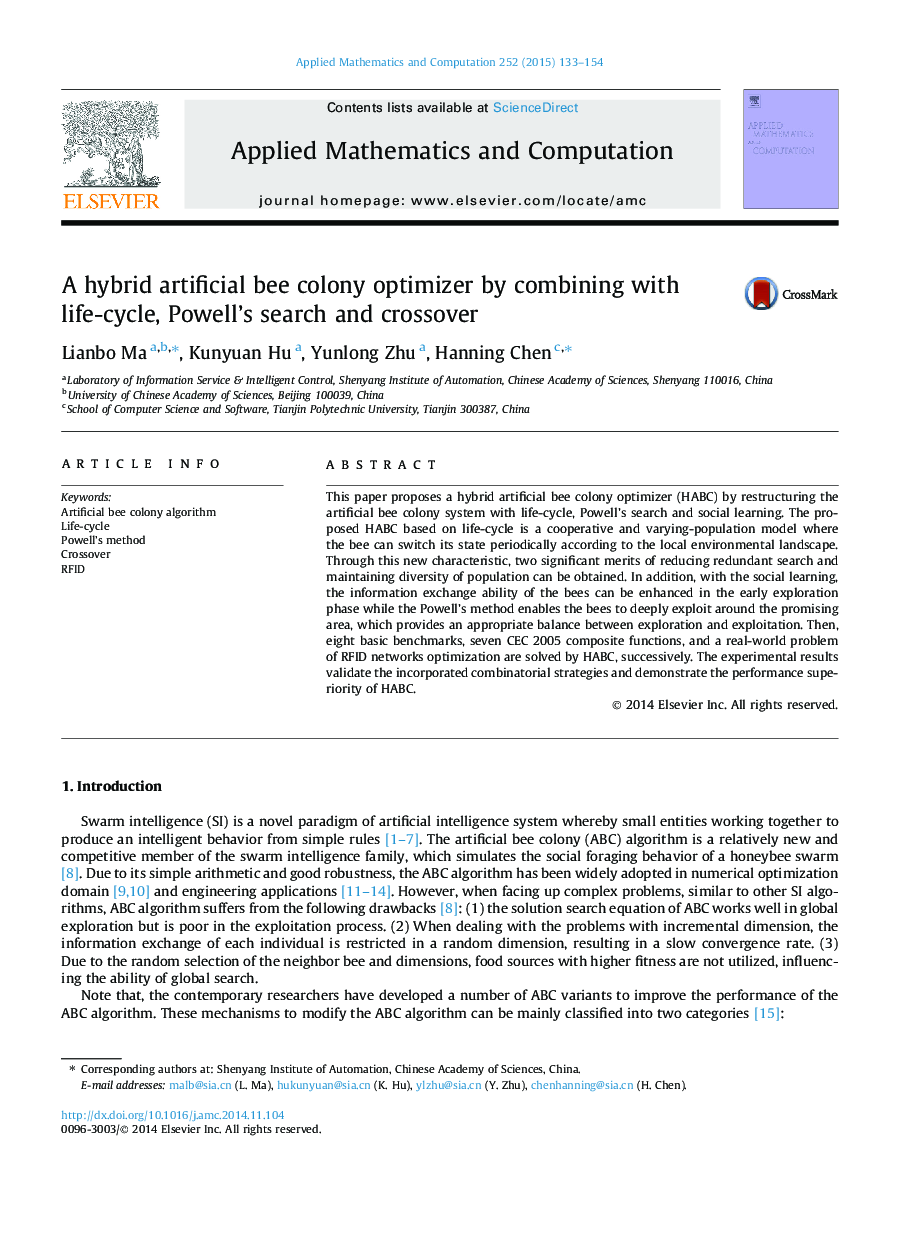| Article ID | Journal | Published Year | Pages | File Type |
|---|---|---|---|---|
| 4627122 | Applied Mathematics and Computation | 2015 | 22 Pages |
This paper proposes a hybrid artificial bee colony optimizer (HABC) by restructuring the artificial bee colony system with life-cycle, Powell’s search and social learning. The proposed HABC based on life-cycle is a cooperative and varying-population model where the bee can switch its state periodically according to the local environmental landscape. Through this new characteristic, two significant merits of reducing redundant search and maintaining diversity of population can be obtained. In addition, with the social learning, the information exchange ability of the bees can be enhanced in the early exploration phase while the Powell’s method enables the bees to deeply exploit around the promising area, which provides an appropriate balance between exploration and exploitation. Then, eight basic benchmarks, seven CEC 2005 composite functions, and a real-world problem of RFID networks optimization are solved by HABC, successively. The experimental results validate the incorporated combinatorial strategies and demonstrate the performance superiority of HABC.
